Interview
On this special interview segment on Africanews, analyst Niagalé Bagayoko breaks down the stakes of an Africanization of counterterrorism efforts. The military rulers in Burkina Faso, Mali and Niger recently signed a mutual defence pact. They belonged to the G5 Sahel initiative spearheaded by France.
The Sahel region accounted for more deaths from terrorism in 2022 than South Asia and the (MENA) Middle East and North Africa regions combined, the latest Global terrorism Index reported.
The region is experiencing a security, humanitarian, and political crisis.
Niagalé Bagayoko, the president of the African Security Sector Network is our guest.
Frenchs troops in Niger have started leaving the country that is one of the founding members of the G5 Sahel alliance. What's left of the ambition of the counter-terrorism force?
Niagalé Bagayoko: The 5 Sahel had a bigger ambition and was not only dedicated to security issues but sought to deliver on a development-based agenda as well. From an operational point of view, when this joint force was set up, it ran into several difficulties, not only in the field, but also from a decision-making point of view. These difficulties lead to Mali’s exit from the organisation. This handicapped the alliance and, in fact, led to a certain lethargy. Today, the central states of the Sahel have set up an alternative intervention framework. Mali, Niger and Burkina Faso have signed a new charter, the Alliance of the Sahel States that is clearly appears as an alternative project to the G5 Sahel. If I may, it is important to mention that the states I have just cited, had as early as 2013-2014 when they were still governed by civilian governments, they had considered an alliance in such a framework of this region of Liptako Gourma that would have been affiliated with the eponymous authority.
You’ve just mentioned the AES, the Alliance of the Sahel States that includes Mali, Niger and Burkina Faso. Can this force successfully meet people’s aspirations for stability and security?
Niagalé Bagayoko: The difficulty is that for eleven years now, since 2012, all the efforts made both by the Sahelian states and by their international partners have not translated into improved security, particularly for civilian populations. When we consider the 2023 figures, if we look at the figures compiled by NGO ACLED, they show a continuous deterioration of the situation. This alliance therefore risks facing the same difficulties all previous frameworks operating in the Sahelian region suffered when put to the test by a multidimensional insecurity.
The first convoys of French troops departing from Niger by road are now headed to Chad, another founding member of the G5 Sahel. They will then return to France. However, in recent weeks, voices were heard demanding the exit of French troops already stationed in Chad. How likely is it that we will see a domino effect?
Niagalé Bagayoko: The question of Chad is absolutely central in several respects. First, because Chad is originally, the oldest stationing area of French troops in the region. France is particularly attached to Chad, where it has a long tradition of presence and intervention. This has been evidenced by the unwavering support that France has given to the Military Transition Council that was set up in an unconstitutional manner and which is headed by the son of late president Déby, as part of a tradition of dynastic transition.
And we realize that it's the difference of treatment, in the way the situation in Chad and in other countries, notably Mali, has been handled, the double standard, is what has largely contributed to undermining the credibility the position of France and delegitimizing it.
Chad remains a key anchorage for France but as you have mentioned, there is contestation. However, the difference between the juntas in power in N'Djamena and the other military rulers, is that the Chadian junta has proved it was capable to fire at protesters, this is absolutely not what we have seen in other countries headed by military juntas who enjoy a popular support.




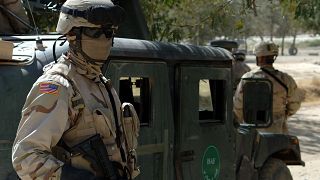
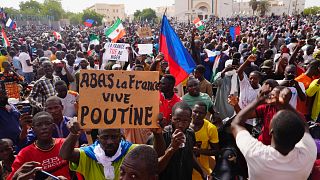
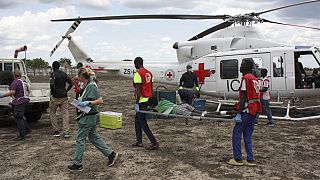
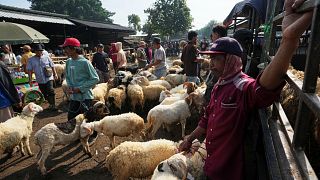


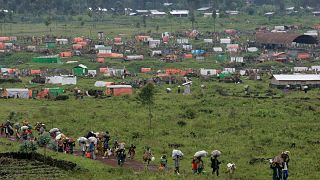
Go to video
Alliance of Sahel States puts on show of unity through inaugural games
11:15
AI drones lead breakthrough against malaria in Africa [Business Africa]
01:14
Mali and Russia sign deal on nuclear energy during Goïta's Moscow visit
01:41
UN warns of looming famine in Sudan, Gaza and 3 other global hunger hotspots
Go to video
Mali: Army foils attack in Timbuktu, a day after jihadist assault killed 30 soldiers
01:11
ECOWAS at 50: Celebrating unity as the region fragments